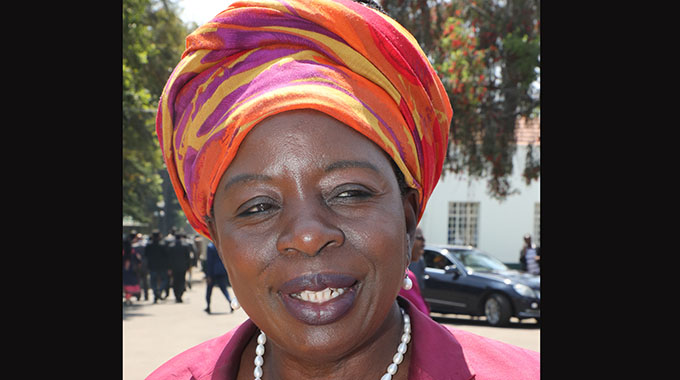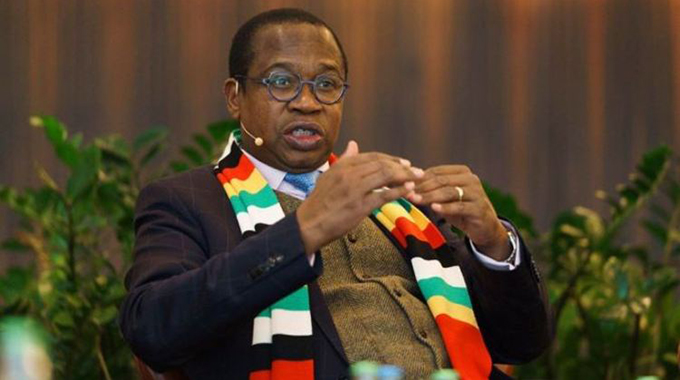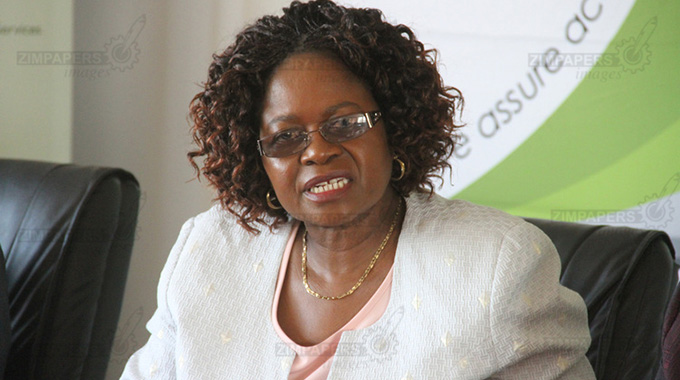Nzenza clears air on TNF talks

Africa Moyo Deputy News Editor
Public Service, Labour and Social Welfare Minister Dr Sekai Nzenza has dismissed claims that she agreed with other Tripartite Negotiating Forum (TNF) partners — labour and business — to cancel and review Statutory Instrument 142 of 2019. SI 142 of 2019 removed the multiple currency system and also re-introduced a local currency — the Zimbabwe dollar.
And TNF partners held their first meeting on Wednesday which was attended by Employers’ Confederation of Zimbabwe (Emcoz) acting president Dr Israel Murefu, Zimbabwe Congress of Trade Unions (ZCTU) president Mr Peter Mutasa, Apex Council chairperson Mrs Cecilia Alexander and Zimbabwe Federation of Trade Unions (ZFTU) president Mr Kennias Shamuyarira.
Dr Nzenza chaired the meeting, which was held to consider topical issues such as price and incomes stabilisation, measures to promote economic viability, measures to build trust and viability and operationalisation of the TNF Act.
During that meeting, labour and business representatives expressed concern at not being given an opportunity to comment on the recently enacted SI 142 of 2019.
In a statement yesterday, Dr Nzenza said there had been miscommunication and understanding regarding the communiqué signed by the social partners after TNF proceedings.
“The communique which was signed was not an agreement by the minister to rescind the Statutory Instrument 142 of 2019 but an undertaking, as chairperson of the TNF, to take the recommendations of the TNF to Cabinet as requested by labour and business organisations during the meeting,” she said.
The request was done in terms of Section 10 (1) of the TNF Act which says the “decisions of the main TNF within the domain of socio-economic policy shall form recommendations to Cabinet”.
Some online media organisations have suggested that Dr Nzenza appended her signature on an agreement by the partners to have SI 142 of 2019 rescinded and reviewed.
Earlier, Dr Nzenza had told The Herald that the inaugural meeting by TNF partners was to determine “how the social dialogue will work”.
Said Dr Nzenza: “This was our inaugural meeting to determine how the social dialogue will work. The TNF legislation and rules of engagement will be clarified by all the parties at the level of technical team.
She added that the partners’ roles and responsibilities within the TNF were still to be clarified. It is expected that once all the parties are on board and they are constituted according to the Act, then such roles and responsibilities could be spelt out.
Dr Nzenza said the issues under discussion on Wednesday were referred to the technical committee for deliberation and will report back to the main TNF on a date to be agreed.
“It was also agreed that the composition of the various committees of the TNF and the standing rules of engagement will be developed by all the parties at the level of the technical committee,” she said.
Since the advent of SI 142 of 2019, retailers have increased prices beyond the ordinary person’s reach.
Confederation of Zimbabwe Industries (CZI) president Mr Henry Ruzvidzo told delegates during the launch of the Zimbabwe National Industrial Development Policy (ZNIDP) in Harare that some retailers and producers increased prices because of uncertainty over what the future holds.
“On prices, what we probably see is anxiety by players not just manufacturers, but retailers as well, in terms of not understanding which way things are going as far as inflation (is concerned) and sometimes it translates into very unreasonable reaction where one wants to protect their products as far as possible,” said Mr Ruzvidzo.
Industry and Commerce Minister Nqobizitha Mangaliso slammed the price increases, adding that they are largely “unjustified”.
“Why are we seeing price increases? Should we as Government close borders when I can buy a product 10 times less just across the border because somebody here wants to profiteer? That cannot happen,” he said.











Comments